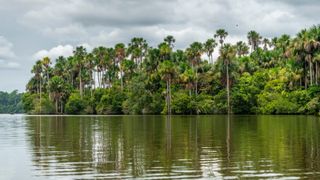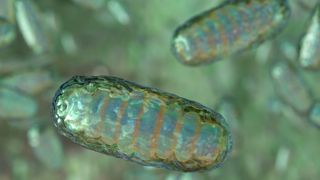news analyses
Latest about news analyses

$14,000 pregnancy robot from China isn't real. But is a similar technology possible?
By Nicoletta Lanese published
A story circulating on social media this week featured a seemingly made-up scientist who is developing an equally imaginary "pregnancy robot." Virality ensued.

The hunt for 'Planet Nine': Why there could still be something massive at the edge of the solar system
By Ian Whittaker published
The debate about an undiscovered Planet X or Planet Nine has been going on for more than 100 years.

Planned C-sections linked to increased risk of childhood leukemia in study: What to know
By Rachel Somerstein published
A new study underscores a known link between planned C-sections and the risk of ALL, a childhood cancer. But overall, the risk is still very small, experts caution.

The more advanced AI models get, the better they are at deceiving us — they even know when they're being tested
By Roland Moore-Colyer published
More advanced AI systems show a better capacity to scheme and lie to us, and they know when they're being watched — so they change their behavior to hide their deceptions.

Best-ever map of the human genome reveals 'hidden' regions of DNA
By Nicoletta Lanese published
In a pair of papers, scientists greatly expanded our catalog of known genomic variation among humans.

Controversial paper questions whether interstellar visitor 3I/ATLAS is 'possibly hostile' alien tech in disguise
By Harry Baker published
A controversial new paper questions whether the interstellar object 3I/ATLAS is a potentially dangerous alien probe, similar to claims made about 'Oumuamua. But experts have called it "nonsense".

A peatland in the Amazon stopped absorbing carbon. What does it mean?
By Chris Simms published
Peatlands cover just a fraction of Earth's surface, but store huge amounts of carbon. In the Peruvian Amazon, one of these swamps has switched to carbon neutral.

We're within 3 years of reaching a critical climate threshold. Can we reverse course?
By Sascha Pare published
A report published in June found that the world only has three years before it crosses the 1.5 C climate target. So what should we do now?

8 babies spared from potentially deadly inherited diseases through new IVF 'mitochondrial donation' trial
By Nicoletta Lanese published
A groundbreaking trial in the U.K. has released data on eight babies born through a special IVF procedure to lower their risk of mitochondrial DNA disease.
Get the world’s most fascinating discoveries delivered straight to your inbox.
 Live Science Plus
Live Science Plus






